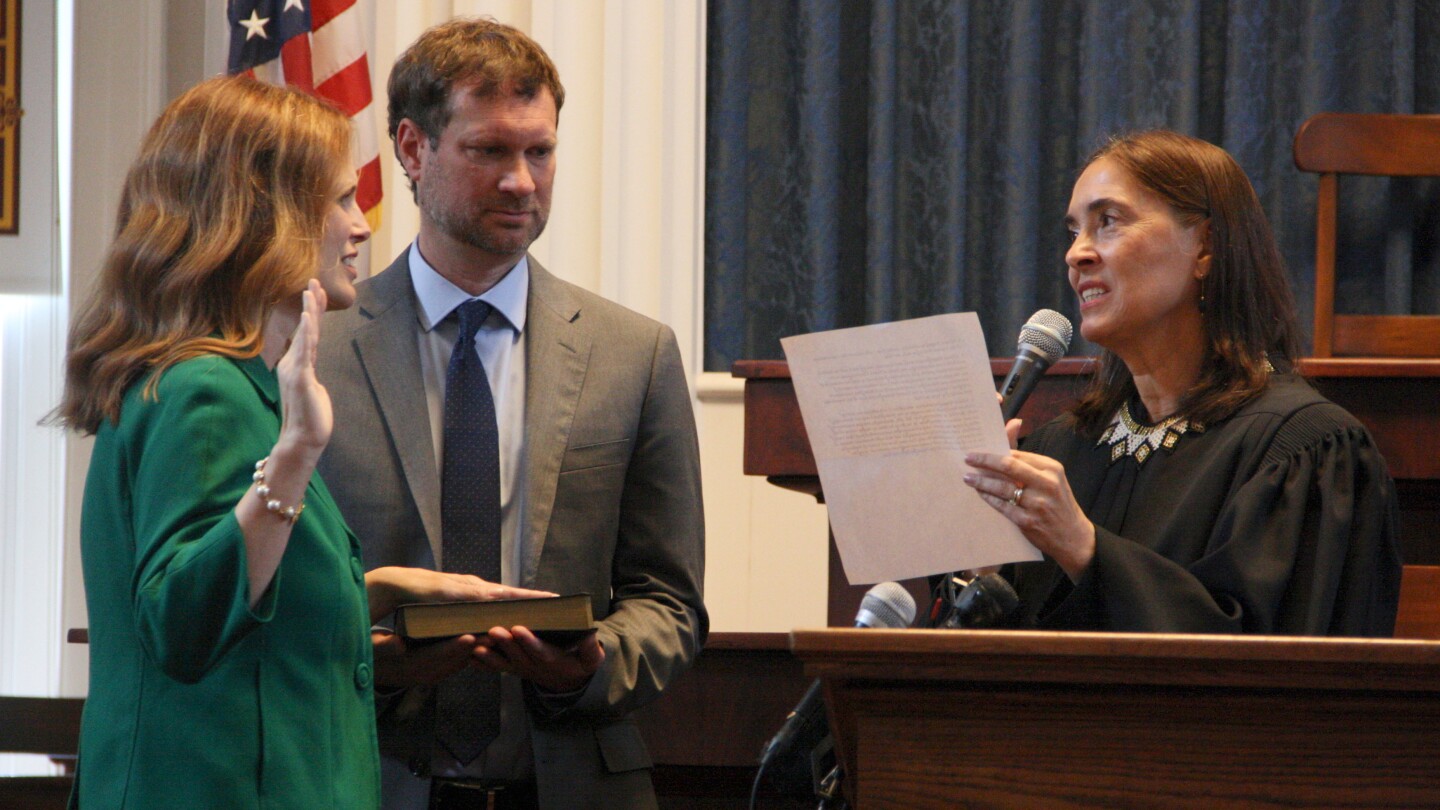In a significant political development, North Carolina Supreme Court Justice Allison Riggs has officially embarked on a new term. Her victory comes after overcoming rigorous challenges from her Republican opponent concerning the legitimacy of thousands of ballots.
The North Carolina State Board of Elections certified Riggs’ election after she secured a narrow 734-vote lead over GOP candidate Jefferson Griffin, out of more than 5.5 million votes cast. This certification followed a federal judge’s ruling against Griffin, who decided not to pursue further appeals. Riggs’ victory is seen as a potential boost for the Democratic Party as they aim to gain control of the court in the future, with Associate Justice Anita Earls, another Democrat, seeking reelection in 2026.
The 2024 general election saw the Associated Press announce over 4,800 winners, but the North Carolina Supreme Court race was the last to be resolved. “Thank you for your trust and unwavering support,” Riggs expressed in her speech after being sworn in. She emphasized the importance of people’s power and accountability in maintaining constitutional rights.
The election result was uncertain for months due to Griffin’s protests over the eligibility of more than 65,000 ballots. Legal decisions ultimately reduced this number to around 7,000. Riggs’ allies accused Griffin and the Republican Party of attempting to invalidate a fair election by challenging ballots that were legally cast.
Riggs commented on the detrimental effects these challenges had on democracy, stating, “Voters should not have to fight tooth and nail to have their lawful votes counted.” Despite Griffin’s protests being dismissed by the State Board of Elections in December, the case saw developments until April. State appeals courts, including the high court, ruled against counting votes from individuals never residing in North Carolina but having parents who did.
Additionally, the courts declared ballots ineligible if military and overseas voters failed to provide photo ID copies or an ID exception form. However, a grace period was offered for individuals to submit the necessary documentation. Riggs sought federal intervention, and U.S. District Judge Richard Myers supported her stance, stating that invalidating ballots retroactively violated due process rights.
Griffin maintained his stance was about ensuring all legal votes were counted but decided against further appeals. Republican leaders argued that the extensive challenge highlighted errors by the State Board of Elections, which they propose to address with the appointment of a new Republican-majority board.
Despite the controversy, some voters, including Isaac Jenkins, found Griffin’s actions to be a troubling attempt to influence the election outcome. “It’s very distasteful that he did challenge,” Jenkins remarked, noting the negative impact on the Republican Party’s image.
Judge Myers’ ruling does not overturn state court decisions regarding future elections in North Carolina, where non-resident military and overseas voters will continue to face restrictions. Justice Riggs, appointed in September 2023, will now serve on the court until 2032, while Griffin continues his role as a judge on the state Court of Appeals.






